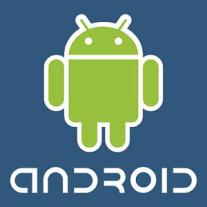Cage match: Windows Mobile vs. Google Android


Since I have spent an extensive amount of time with the Android-powered T-Mobile G1 (my review here) and several Windows Mobile devices (see my HTC Fuze review), I think I can offer up a fair comparison between the two operating systems.
Here's my breakdown:
Stability
Windows MobileThere are people that jump on my Windows Mobile posts right away and complain about stability of their devices. There have been stability issues in the past with certain devices, and many of these devices are still available today. That said, every Windows Mobile non-touchscreen device I have used the last couple of years has been rock-solid, no reset necessary. Touch screen devices I have used recently -- Apple iPhone, my BlackBerry -- tend to lock up with lots of 3rd party applications. In fact, the only mobile OS I haven't had lock up is the one on Symbian S60 devices.
Google Android
I started using a G1 before they were publicly released and have loaded up and removed over 50 applications and pushed the limits of the device. It has NEVER soft reset or required a hard reset, and that is saying something for a brand-new operating system. I have had 3rd party applications freeze and then start back up, and I have even had low memory issues (drives me crazy), but the OS has honestly been much more stable than I would ever have anticipated.
Winner: Google Android, which has been more stable and reliable than Windows Mobile.
Multimedia (Image and video capture, music listening, movie viewing)
Windows MobileThere are very few Windows Mobile devices that have good cameras for image and video capture and the best current model is the Samsung OMNIA. Music and video playing is managed through the lame Windows Media Player mobile application. This is a desktop application that was brought to the Pocket PC and has only seen small incremental updates over the years. I personally can't stand WMP mobile and think Microsoft needs to move quickly to getting something like the Zune multimedia interface on Windows Mobile. If this was done, I would be much more likely to use my Windows Mobile device for multimedia.
Google Android
The camera on the G1 is of typical HTC quality, but with no flash is very limited. It does have autofocus so it is better than some other devices and does surprisingly well with applications like ShopSavvy. There is no video capture capability either.
The Amazon MP3 store is integrated on the G1 and there is a fairly basic music player included. While there is a video player integrated into the Android OS, there is no native application that hooks into this. There are 3rd party apps that fill the video playing need at this time.
Winner: Neither. The G1 is not a multimedia powerhouse, and most Windows Mobile devices are not either. I think this area is open for groups to step in and improve in both operating systems.
Phone performance/integration
Windows MobileThere are so many Windows Mobile devices on the market it is tough discuss their phone performance because it varies by device. Touch screen devices are definitely a bit more difficult to use as a proper phone (dialing, holding up to your head, etc.). Windows Mobile non-touchscreen devices excel in phone functionality and I can easily recommend them for people looking for a good solid standard phone.
Google Android
The G1, too, is a bit difficult to use as a proper phone, but where the G1 excels is in the notifications -- and I haven't found another OS that performs as well. The notifications on my Nokia E71 do come close to those found on the G1, though, and I would like to see them integrated across S60.
Winner: Tie. Both experiences vary device-to-device.
Software (integrated and 3rd party)
Windows MobileThere are thousands of developers and software titles for Windows Mobile devices, and you can pretty much find an application to do anything you need with your device. Many of these improve on the software included with the OS so the sky is pretty much the limit with Windows Mobile.
Unlike Google Android, Windows Mobile has majorly failed in the "App market" area and it is sad to see they still do not have an on-device software store like the Android Market. We may see more on this at Mobile World Congress, but it may still be too little too late.
Google Android
On the other hand, the G1 is a fairly new device and there are already applications that are available for it that beat Windows Mobile applications. For example, there is ShopSavvy that you can use to blow away your family and friends as it shows them the product you scanned, where to find it cheaper online, and where to find it even from a store close to you using the integrated GPS receiver. There are also decent mobile clients for Twitter, Facebook, and Shazam that are rare or nonexistent on Windows Mobile. It is tough to judge applications for the Google Android OS at this time since all are still currrently free and I think (and hope) the high quality application floodgates will open when commercial apps are made available in the Android Market.
Winner: Google Android, thanks to its inventive Android Market.
Exchange (enterprise) support
Windows MobileIf you work with an Exchange server and Outlook it is very tough to beat a Windows Mobile device for the complete Exchange experience. Motorola needs to get back into the consumer game now and waiting until 2010 to get going with Windows Mobile and the enterprise market may be a low risk venture, since enterprise clients are generally slower to change and adopt new technologies.
Google Android
I purchased and am enjoying the TouchDown application on my G1 and every few days they have been issuing updates that is giving me a better and more featured experience with my Exchange server. Today's update gave me the calendar views I wanted and I think the Exchange experience can be close to matched on the G1 with more work by third parties.
Winner: Windows Mobile, but Android isn't far behind.
Display technologies
Windows Mobile and Google AndroidCurrently, Windows Mobile devices have non-touch or touch (resistive) displays while the G1/Google Android has a capacitive display. There are pros and cons to both -- with the iPhone becoming so popular today, capacitive displays seem to be the future -- and they are definitely easier to use from a UI perspective. However, you cannot use handwriting input methods and there are some limitations with selecting items on the display. There are also millions of people who like non-touch screen displays with navigation and selection performed from hardware keys and we could see Android in both flavors like we see with Windows Mobile and S60.
After using my iPhone and G1, I do think that overall the user experience with a capacitive display is a better experience and is the wave of the future. That said, I imagine we will see Windows Mobile devices with capacitive displays in the future too so either OS could be used from a display perspective.
Winner: Google Android, thanks to the capacitive trend, but it depends on the hardware.
Wireless capabilities
Windows Mobile and Google AndroidBoth operating systems support all the standard wireless modes that are available today, but currently the Bluetooth stack is very limited on the Android OS. This may be a function of the G1 hardware, but we won't know for sure until more hardware is released. Both operating systems have 3G, WiFi, Bluetooth, and GPS capabilities.
Winner: Windows Mobile, by a Bluetooth.
Security
Windows MobileFor enterprise mobile devices, RIM BlackBerry seems to be the best from a security viewpoint, but since I am not the IT guy, I can't speak with certainty. From what I understand from research, Microsoft and Windows Mobile have come a long way with regard to security and security management through Exchange ActiveSync.
Google Android
The G1 is an "open" system that syncs with Google servers so the devices are not really manageable by the IT department. I am not sure what, if anything, can be done to make these devices secure for enterprise usage and will have to let others chime in with thoughts on Android security.
Winner: Windows Mobile, thanks to its closed-source nature.
Hardware form factors
Windows MobileCurrently, there is no question that Windows Mobile has it going on with the hardware. We have some incredible hardware offerings like the Sony Ericsson XPERIA X1, HTC Touch HD, HTC Touch Pro, Samsung Blackjack II, and many dozens more. The nice thing about Windows Mobile is that you can find a device that fits your needs in both touchscreen and non-touchscreen flavors on virtually any carrier you want.
Google Android
Android has a long way to go. The only Google Android device currently on the market is the T-Mobile G1. While it is a solid first device, it is definitely geared towards the mobile phone geek, with a rather inelegant and clunky slide-up display, funky chin, HTC proprietary port for headphones and charging, limited camera, and poor battery life. The trackball is slick, the display is very nice and functional, and the keyboard is quite useful.
Winner: Windows Mobile, but based only on current Android offerings.
Conclusion
After looking over these different aspects of each operating system, I think Motorola should focus on Android if they want to target the consumer, and Windows Mobile if they want to target the enterprise.What do you think of this comparison? Are there other areas where each OS stands out from the other?